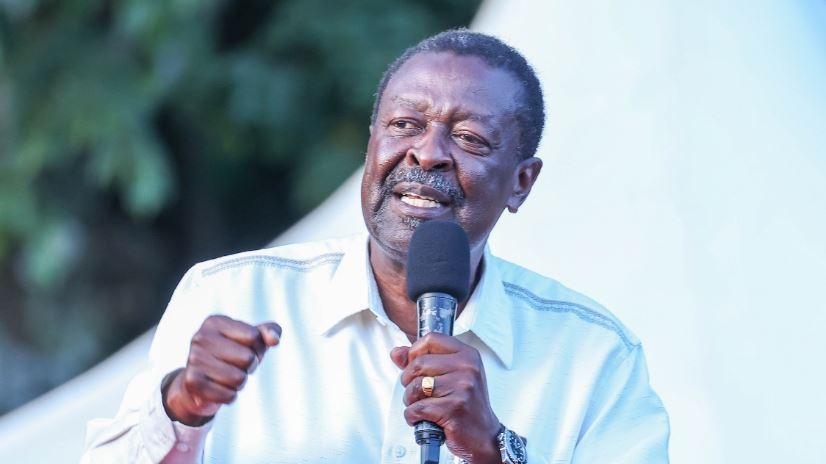

The third African Forum on Cybercrime and Electronic Evidence in Nairobi has attracted participants across the continent to enhance cross-border cooperation, and building capacity in handling electronic evidence.
The forum brings together key stakeholders in fight against cybercrime including ministers, judges, prosecutors, law enforcement officers, technology experts, and representatives from civil society and the private sector across Africa and beyond.
Jointly organized by the Kenyan government, the Council of Europe, and the European Union, the forum focused on strengthening Africa’s response to cybercrime, enhancing cross-border cooperation, and building capacity in handling electronic evidence.
Speaking during the event, Principal Secretary for Internal Security and National Administration Raymond Omollo highlighted Kenya’s leadership in advancing cybersecurity initiatives.
“While technology facilitates access to services and drives economic growth, it also exposes governments, businesses, and citizens to sophisticated cyber threats,” he said, noting that last year alone, Africa lost more than $40 billion(Sh518 bn) due to cybercrime.
He emphasized that secure digital identity systems, mutual legal assistance, and youth-focused cybersecurity initiatives must form the core of continental strategies, given that Africa’s median age of 18 years places youth at the center of the digital landscape.
Omollo stressed the need for coordinated and rights-respecting responses to cyber threats, noting that cyber incidents originating thousands of miles away can destabilize institutions and economies within seconds.
He highlighted Kenya’s e-Citizen platform, which offers more than 22,000 online services, as a model of digital innovation while acknowledging that such systems also attract cyber risks.
He called for investment in capacity-building for prosecutors, judges, and law enforcement officers, and for digital platforms designed to protect citizens without compromising civil liberties.
Virgil Spiridon, Head of Operations at the Cybercrime Programme Office, Council of Europe, welcomed the forum as an opportunity to strengthen Africa’s legislative and operational capacity against cybercrime.
He highlighted the role of the Budapest Convention, which sets international legislative standards on cybercrime and complements the United Nations Convention.
“In Africa, 13 countries are full parties to the Budapest Convention, and four more are in the process of acceding. Countries that harmonize their legislation benefit from technical support, training, and intelligence sharing,” he said, commending Kenya’s leadership in the regional fight against cybercrime.
Spiridon noted that the Council of Europe has engaged with more than 140 countries and conducted more than 2,500 capacity-building activities over the past 14 years, underscoring the importance of multilateral cooperation.
Smokin Wanjala, Supreme Court Judge and Director General of the Kenya Judiciary Academy, emphasized the need to equip judicial officers to handle cybercrime and electronic evidence.
“Unless judges are properly equipped, they are unlikely to render justice in the manner expected due to the complexity of cyber offenses. Continuous, multi-sectoral training is essential,” he said.
Wanjala highlighted the Academy’s structured programmes for judges, prosecutors, and investigators, covering cybercrime law, digital forensics, electronic evidence, and counterterrorism.
He explained that multi-sectoral training ensures alignment among justice actors, facilitating seamless investigation, prosecution, and adjudication of cyber offenses.
Wanjala pointed out that ongoing and projected training programmes aim to build sustainable expertise to address the evolving technological and legal landscape.
Matthias Kloth, Head of Digital Governance and Sport Department of Europe, highlighted the importance of coordinated, multi-stakeholder action plan to combat cybercrime.
“The fight against cybercrime requires sustained action across borders, across institutions. This forum embodies exactly that spirit,” he said.
Kloth noted that international instruments, including the Budapest Convention, and regional frameworks such as the Malabo Convention on Cyber Security and Personal Data Protection, are shaping Africa’s digital future while balancing security with human rights protections, including privacy and freedom of expression.
He commended Kenya’s role as host, noting the country’s commitment to strengthening legal, institutional, and technological capacities to tackle cyber threats.
Lamin Jabbi, Minister of Communications and Digital Economy of The Gambia, drew attention to the economic and social costs of cybercrime on the continent.
“South Africa alone loses about three billion US dollars annually to cybercrime. Challenges include limited trained prosecutors, insufficient public awareness, and fragmented policies,” he said.
Jabbi outlined Gambia’s initiatives to address these challenges, including the establishment of a digital forensic laboratory, a national cybersecurity strategy, and the passage of a data protection bill.
He emphasised the need for harmonised policies, intelligence sharing, and continental cooperation, while also investing in youth awareness and empowerment programs.
Vinsent Perera, Attorney General of Seychelles, warned that technological advances have enabled increasingly sophisticated cyber offenses.
“Cybercrime has become transnational and highly complex. Investigators and prosecutors must adapt rapidly to protect citizens and uphold the rule of law,” he said.
Perera emphasised the importance of private sector collaboration, continental cooperation, and adaptive legal frameworks to address evolving cyber threats.
He noted that technological advancements such as artificial intelligence, automated fraud, and deep web operations require a proactive, coordinated response across governments and institutions.
The forum showcased Kenya’s commitment to
enhancing cyber resilience and highlighted the urgent need for
capacity-building, legislation, and technological investment across Africa.

















